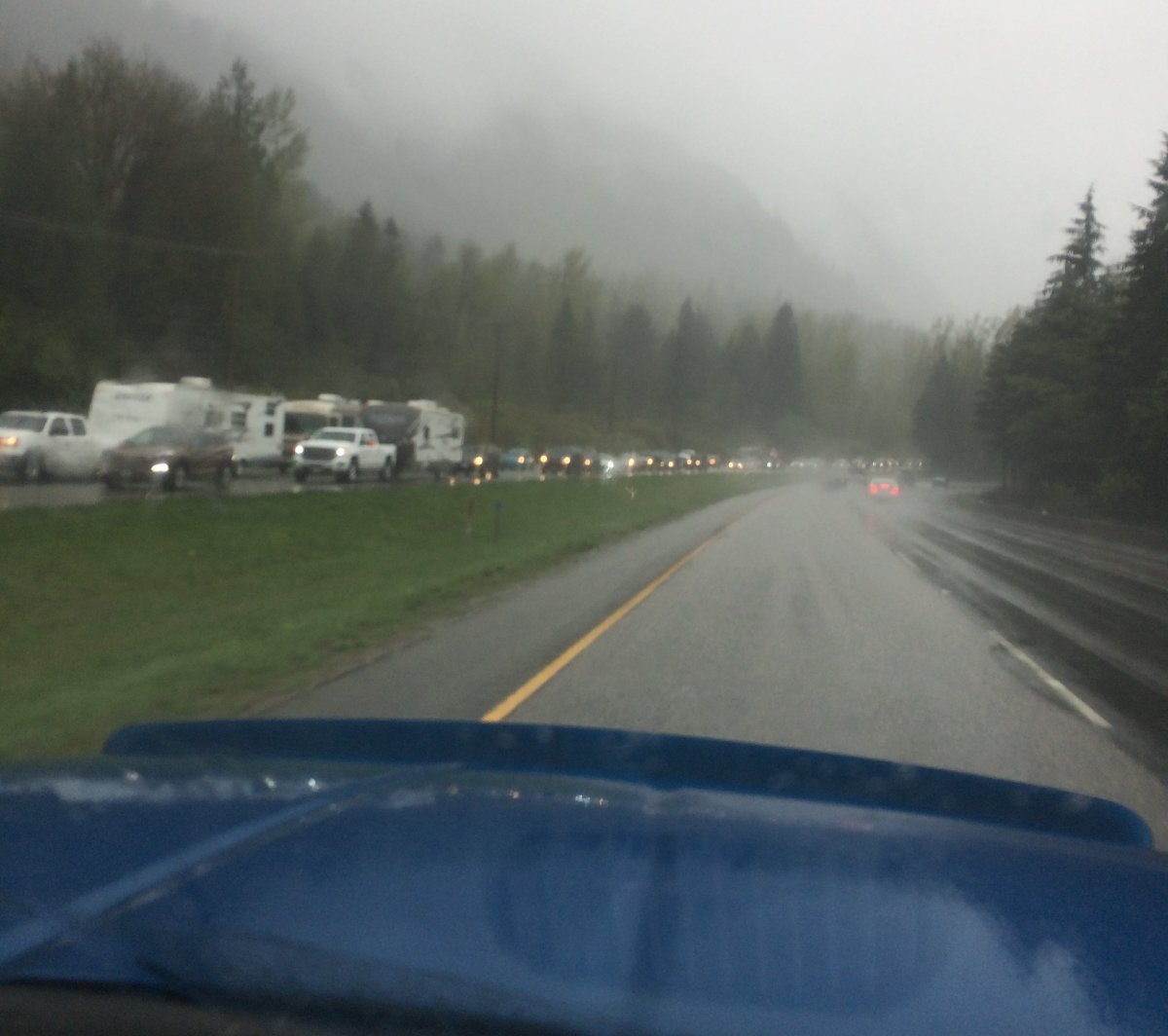It’s a hard temptation to resist: mashing the gas pedal to save time so you can enjoy more of your long weekend.

Yet during this Easter long weekend, with heavy volume on highways, trying to beat traffic by speeding can lead to disastrous results.
According to ICBC statistics from a 2018 press release, an average of four people are killed and 650 are injured in 2,300 crashes across the province between Good Friday and Easter Monday.
Not only are major routes busy, but April can be a challenging month, with weather and road conditions frequently changing — snow at higher elevations is commonplace.
On Thursday, the Ministry of Transportation sent out several driving tips for this Easter long weekend.

Get breaking National news
- Be prepared: Weather conditions can change suddenly at this time of year, especially when travelling over long distances. Check the road and weather conditions for your entire trip at drivebc.ca which features over 400 webcam views throughout the province.
- Get a tune-up: Remember to check the engine oil, washer fluid and lights. Take a look at your vehicle’s tires, including the spare, to make sure they are in good condition and properly inflated. Keep winter tires on vehicles until April 30, if driving mountain passes.
- Stay alert: Be realistic about travel times and plan rest stops at least every two hours to avoid becoming fatigued while driving. Fatigue slows a driver’s reaction time, decreases awareness and affects their judgment.
- Put phones away: Turn off cell phones or store them out of reach to avoid the temptation. Research shows five seconds of texting at highway speeds is like driving blindfolded for almost the length of an entire football field.
- Be sober: The risk of being in a fatal crash is, on average, seven times greater at a blood alcohol content (BAC) between .05 and .08, compared with driving sober. Let someone else drive or make alternate arrangements to avoid drinking and driving.
- Obey the limit: Speed is B.C.’s number one road safety problem, contributing to about 35% of all fatal crashes. Vehicles driven at greater than 40 km/hr over the posted speed limit are immediately impounded in B.C. Their drivers are fined and three penalty points are added to their licence.
- Share the road: Warmer weather encourages more motorcyclists, pedestrians, and cyclists to hit the road. Give other road users the time and space to reach their destinations safely.
Below are driving tips from ICBC:
- Check your vehicle: If this is your first longer drive of the year, remember to check your engine oil, washer fluid, lights and inspect your vehicle tires, including the spare, to make sure they are in good condition and properly inflated.
- Get some rest: Make sure you’re well rested before heading out on a long drive. Take breaks or switch drivers every two hours to avoid fatigue.
- Slow down on wet roads: Allow yourself at least twice the normal braking distance on wet or slippery roads. Avoid driving through flooded or washed out roads.
- Avoid distractions: Spring brings more cyclists, pedestrians and motorcyclists on our roads. Avoid distractions behind the wheel so you are alert and see all road users. Make important calls and send texts on your cell phone before you start your trip.
- Watch for signs of wildlife: Animals may be feeding on plants near the roadside this spring. Slow down and use caution when you see wildlife on or near a highway, so you have time to react if an animal crosses your path.
WATCH BELOW: Crafts to make this Easter weekend

Below are regional statistics from ICBC (injury and crash numbers are based on data from 2011 to 2015; Easter long weekend is calculated from 6 p.m. Thursday to midnight on Easter Monday):
- On average, 490 people are injured in 1,500 crashes every year in the Lower Mainland over the Easter long weekend.
- On average, 62 people are injured in 310 crashes every year in the Southern Interior over the Easter long weekend.
- On average, 78 people are injured in 310 crashes every year on Vancouver Island over the Easter long weekend.
- On average, 20 people are injured in 130 crashes every year in the North Central region over the Easter long weekend.
In related news, a single-vehicle accident occurred in West Kelowna on Friday morning.
The incident took place at approximately 8:30 a.m., along Boucherie Road near Sunnyside Road. Emergency crews responded to the scene. It’s unknown what led to the crash and if any significant injuries occurred.










Comments